Sustainable production of raw materials
Addressing global warming caused by climate change and conserving natural capital is an urgent task for the Calbee Group. We are working together with our stakeholders, including contract producers, on initiatives to ensure stable quality and procurement of potatoes, our key ingredient, and promote improvement in the sustainability of agriculture.
Improving sustainability of agriculture through potato research
Development of new potato varieties
The major risks we face in the procurement of potatoes are declines in quantity and quality due to global warming resulting from climate change, as well as the spread of pests and diseases, including potato cyst nematodes. In response, we are collaborating with research institutions in Japan and abroad to develop new potato varieties that are resistant to heat and disease, thereby adapting to climate change.
The Poroshiri variety, registered as a new proprietary variety by the Calbee Group in 2017, is more pest-resistant than existing varieties and is expected to yield larger harvests. We will continue to promote its cultivation. We will also continue to work on improving our breeding and development technologies for varieties that are resistant to climate change, and introduce new varieties to ensure a stable supply of potatoes.
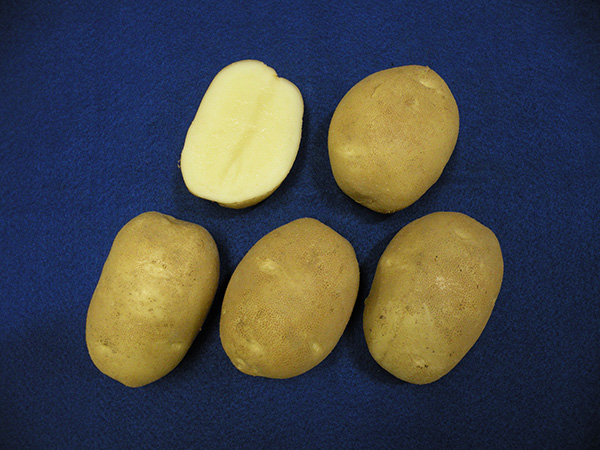
Poroshiri registered as a new variety
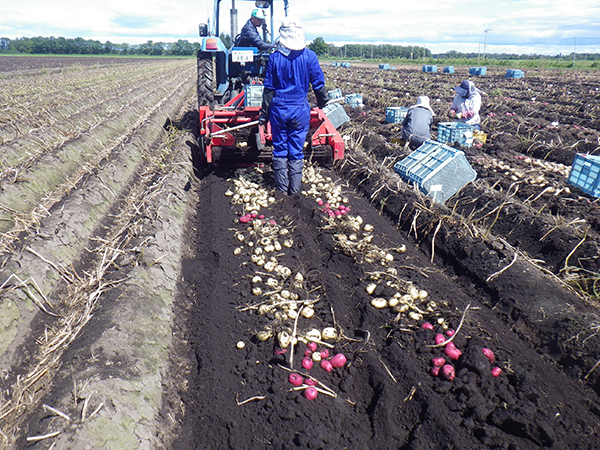
Harvesting at a field where the Calbee Potato Research Institute develops new potato varieties
Labor-saving in agriculture
The number of agricultural workers primarily engaged in farming has been on a downward trend, declining by about 22% from 1,757,000 in 2015 to 1,363,000 in 2020*. Reducing their workload and stabilizing their income are major issues, also from the perspective of securing farmhands.
Potatoes are a particularly labor-intensive crop among farm products. The Calbee Group has been providing a broad range of cultivation and harvesting support to help reduce the workload of contract producers. One form of such support is our contractor business. By introducing the use of large machinery, we help farmers in their more labor-intensive harvesting tasks, which leads to an increase in the planted acreage of potatoes.
*Source: Ministry of Agriculture, Forestry and Fisheries. “FY2021 White Paper on Food, Agriculture, and Rural Areas”
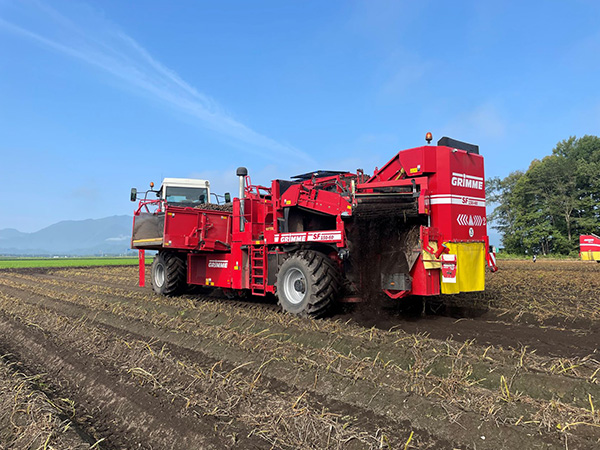
Large agricultural machinery used in contractor business
Dispersion of potato production areas
Most recently, the potato harvest decreased significantly in 2021 due to a drought in the Tokachi, Abashiri, and Kamikawa regions of Hokkaido. To address the risks posed by climate change to potato procurement, the Calbee Group is making efforts to diversify farming areas in Hokkaido and expand potato production to regions such as Tohoku and northern Kyushu.
In these new potato-growing areas, we are implementing initiatives suited to the respective conditions, including lending out agricultural machinery for cultivation and harvest. In Miyagi Prefecture, a potato-producing area in the Tohoku region, we shared with contract producers the details of measures to prevent potato rot and early withering caused by heavy rains that result in reduced yields. We took measures to ensure drainage for approximately 85% of the contracted areas, leading to improved harvests.
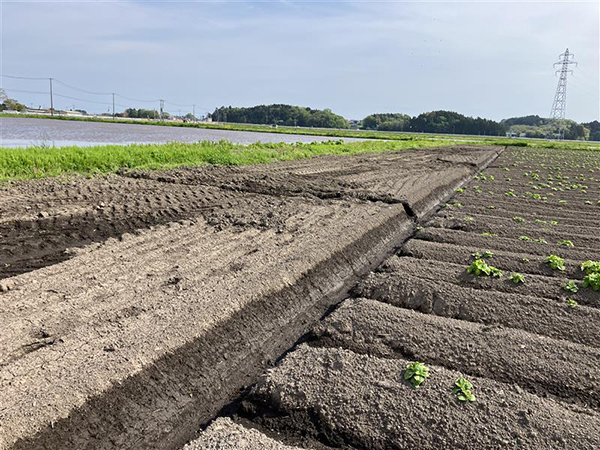
Drainage improvement work at a field (Miyagi Prefecture)
Promoting agricultural sustainability in collaboration with stakeholders
Partnership agreement with the Hokuren Federation of Agricultural Cooperatives
In 2020, Calbee entered into a partnership agreement with the Hokuren Federation of Agricultural Cooperatives (“Hokuren”) to promote potatoes and other agricultural produce grown in Hokkaido.
We are collaborating on all aspects of the agricultural business, from the expansion of potato cultivation areas, storage and logistics, and the development of new products. By leveraging our respective strengths through this partnership, we aim to develop a collaborative business model that promotes agriculture in Hokkaido and throughout the rest of the country. By launching Calbee products jointly developed with Hokuren, we are able to make an ongoing continuous contribution to the promotion of agriculture.
Column: Reducing environmental impact through transportation using large, high-speed cargo ships
Our collaboration with Hokuren extends beyond potato cultivation and product development to improving transportation methods. Generally, potatoes produced in various parts of Hokkaido are transported overland to Tomakomai Port, where they are loaded onto ships and shipped to Calbee's factory. However, shipping potatoes produced in Abashiri and other locations far from Tomakomai by land takes a considerable amount of time to reach Tomakomai Port. To address this issue, we are collaborating with Hokuren to transport potatoes harvested in Abashiri on the Hokuren Maru, a large, high-speed cargo ship that services the route between Kushiro Port and Hitachi Port, thereby shortening the distance and time for land transport and reducing the environmental impact through modal shift.
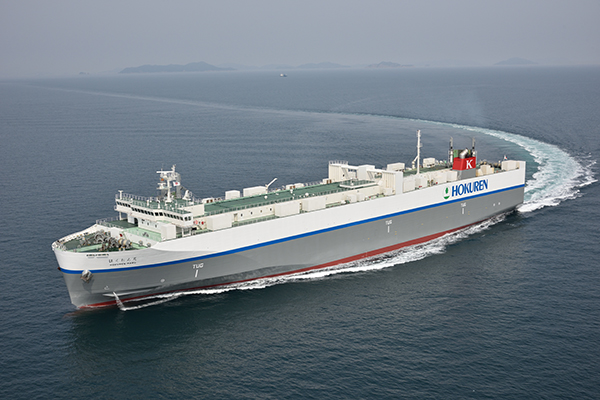
Hokuren Maru
